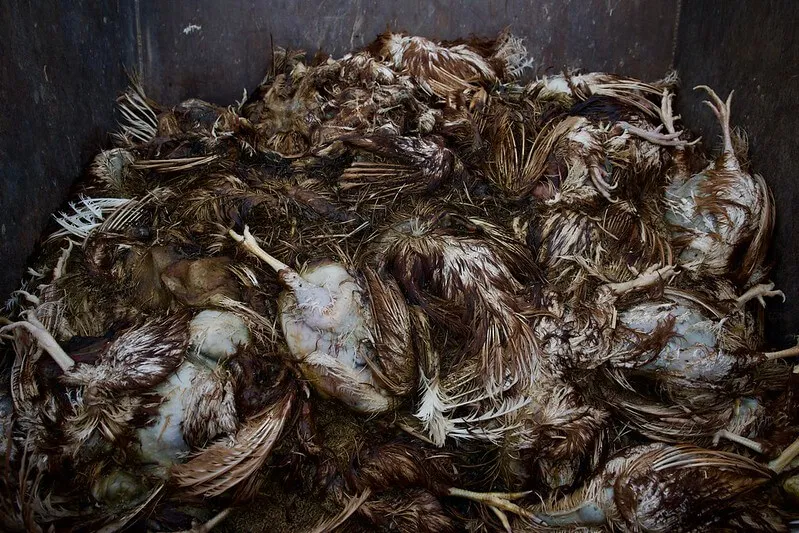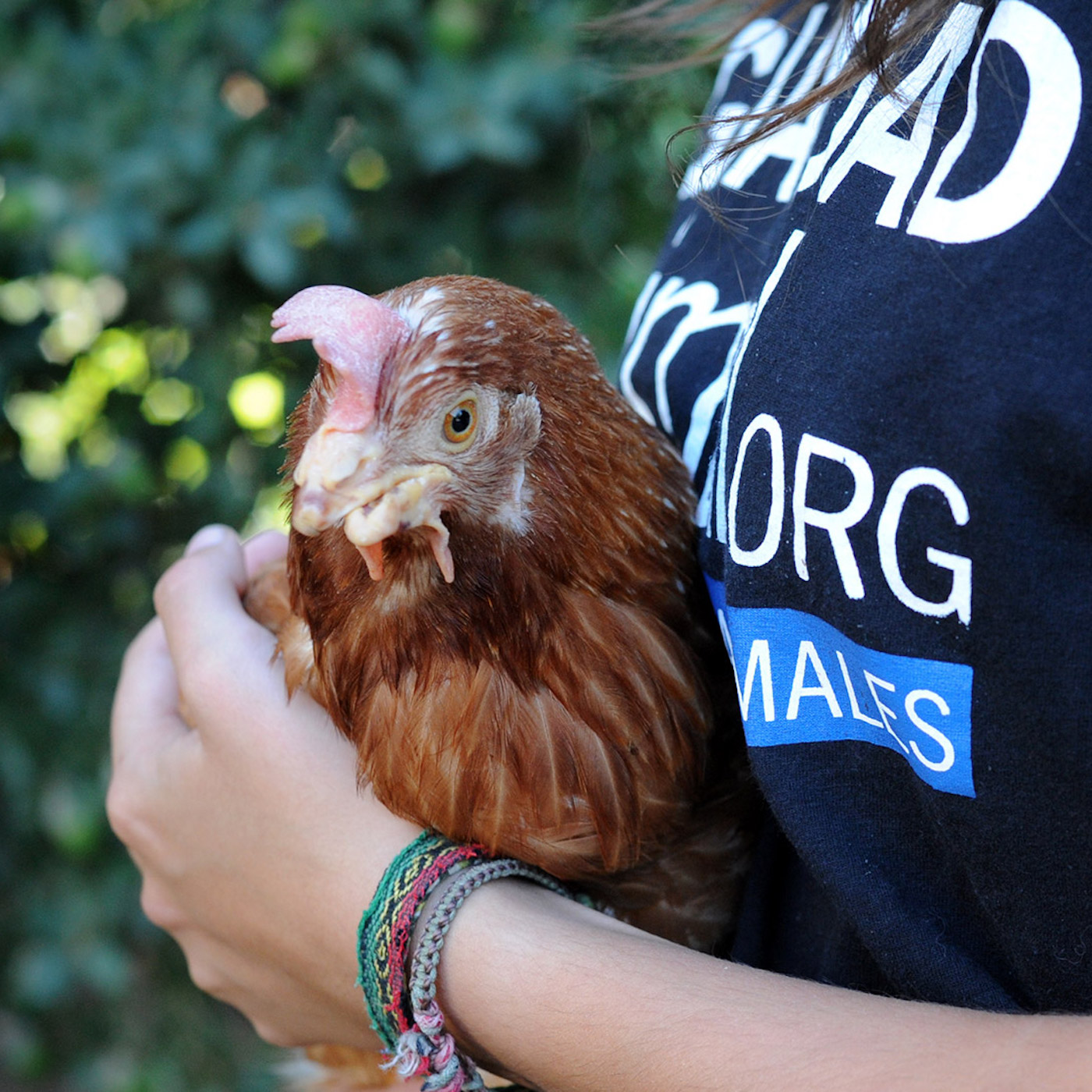Animal Equality documented the deaths of animals on farms affected by the DANA storm in Spain
Animal Equality expresses its support and solidarity with those affected and offers its deepest condolences to the families who have lost loved ones in this catastrophe.
Animal Equality’s investigative team in Spain, deployed to the area in recent days, has documented the devastating impact that the DANA storm has had on the region’s farms.
The footage obtained shows over 1,000 hens who had drowned on an egg farm in Algemesí, where the water rose to over one and a half metres, leaving the animals with no chance of survival.
When we visited, the bodies, stored in containers, remained uncollected by the Valencian Government’s Department of Agriculture, Water, Livestock, and Fisheries, potentially posing public health risks.

Thousands of animals affected
At the time data was collected, the Valencian Government’s Department of Agriculture reported having collected 2,950 dead animals from 17 farms in affected areas and has contacted nearly a thousand impacted farms.
However, the total number of animals confined on farms during the disaster remains unknown and could be in the tens of thousands – pigs, sheep, horses, chickens, and hens – many of whom may have perished or been left for days without food or water.
Lack of animal evacuation protocols in natural disasters
Animal Equality condemns the absence of evacuation protocols for animals in the animal agriculture industry during natural disasters, such as the recent event in Valencia, and the lack of preparedness in these facilities to protect animal lives.
This tragedy, as well as previous ones, such as the Ebro River flooding in April 2018, which led to the drowning of thousands of animals, highlights the absence of rescue plans for farmed animals, leaving them locked up and unable to escape. The lack of preventive measures during such events leaves animals vulnerable and unprotected.
In most cases, during catastrophic events like this one, animals confined on industrial farms become silent victims, drowning or being abandoned without any chance of rescue. For the animal agriculture industry, they are simply economic losses to be covered by insurance. Urgent evacuation protocols need to be established
Javier Moreno, Co-Founder of Animal Equality
The industry’s impact on an increasingly visible and dangerous climate crisis
Industrial farming of animals is among the most polluting sectors and contributes significantly to climate change. According to the Food and Agriculture Organisation, this industry is responsible for 14.5% of global greenhouse gas emissions. This intensive production model affects the lives of animals trapped in these facilities and worsens the climate crisis that fuels disasters like the DANA storm. According to research, eating a plant-based diet is one of the most important actions individuals can take to slow down the effects of climate change. And with so many delicious plant-based options, it’s never been easier – head over to loveveg.uk to get started on your journey today!
How can we help animals affected by DANA?
Many shelters, sanctuaries, and animal rescue organisations in the area have lost everything and need support. This web page by FAADA includes a bit more on what you can do to help animals affected by the floods.

save animals, eat plant based
As a consumer, you hold the power to protect animals from the meat industry. Every plant-based meal saves animals from a life of misery in factory farms and slaughterhouses.

